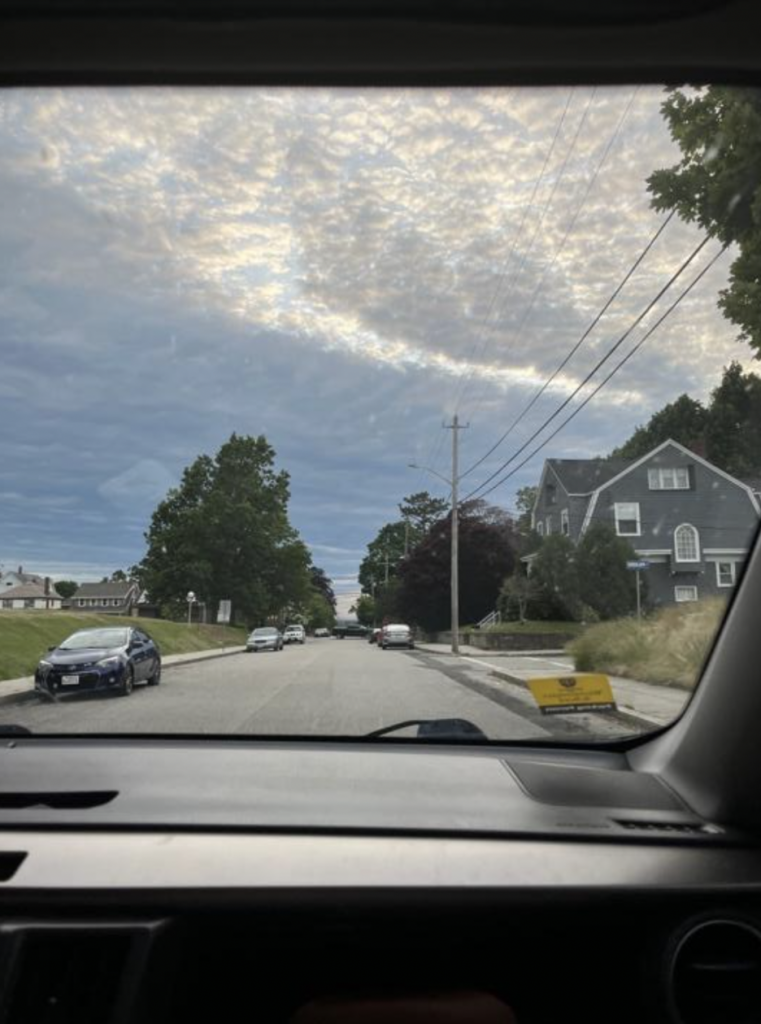Social Impact Internships: Emily Wong (’25)
My name is Emily and I’m a rising sophomore majoring in Chemical Engineering (Course 10). I spent this summer working as a research intern at the Conservation Law Foundation on the Healthy Neighborhoods Study (HNS). Broadly speaking, HNS looks at neighborhood change in 9 communities in and around Boston using an approach called Participatory Action Research (PAR).
The study is based in 9 communities in and around Boston, and uses an approach called Participatory Action Research, or PAR, which operates under the principles that one, the people most affected by a problem know the most about it, and two, we can learn by trying to solve this problem. Our goal is that development in these communities can happen in a just manner and with community concerns in mind, so we partner with local organizations to survey residents and get data on their experiences of neighborhood change. Resident researchers are a big part of this process–collecting data, analyzing it, and developing action-based solutions that they can carry out to address the concerns that are made apparent by the data. A large part of my work this summer has been to support them and this process. This involves getting the surveys ready, helping with trainings, and traveling around Boston to our partners to deliver them and participate in their first survey day.

This was one of my favorite parts of my internship because it meant that I got to meet people who have been dedicated to not only this study but also to their communities for a long time. I’ve learned so much from them–not just from talking with them about their communities and its history and stories, but also from their willingness to share overall. Part of one of the trainings that we do is practicing some tricky scenarios that come up when surveying. In one that we did in Fall River, I tried my hand at one of the survey sections having never surveyed before. Everyone there was not just encouraging, but also willing to pass along some tips from things they’ve encountered in the past–everything from how to sit with a person to make the process easier to how to explain the meaning of a question in a way that made it more understandable.
It’s a perfect demonstration of why PAR works, in my opinion. The people most affected by a problem (having to administer a complicated, 30-minute long survey) know the most about it (how to navigate it and collect good data). The best way to learn about a problem is by trying to solve it (me, eventually surveying and getting though the stumbles). This is my first time doing research in the social sciences, and it’s inspiring that this is what it can look like. I like that it’s an exchange of information and resources between community and institution facilitated by the relationship we build with other people, rather than something extractive. That principle extends through all the work I’ve seen and been a part of in HNS, which is something I’m really proud of.
It has been wonderful working with everyone on the HNS team this summer, from my supervisor Reann and everyone on the CLF and MIT side to everyone on the resident researchers’ side. I’ve developed so many skills working in a professional environment and as a part of a team that is responsible for all the different aspects of a research study. I’ve also grown deeply invested in Boston and the metro area as not just a place I will live for four years, but as a place that deserves a just future with communities that deserve people willing to fight for them. I’m glad to have had the opportunity to work in an organization surrounded by people who do so every day.
Tags: Social Impact Internships, Social Impact Internships Summer 2022
